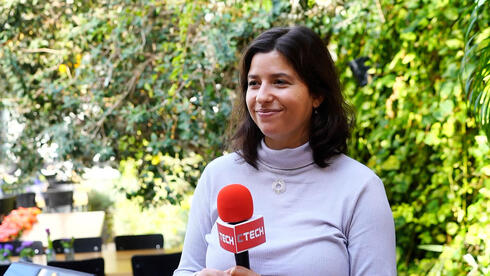
“Is Bitcoin overpriced or a bubble? These claims were made at $1,000, $10,000, and now at $100,000”
“Is Bitcoin overpriced or a bubble? These claims were made at $1,000, $10,000, and now at $100,000”
Six Israeli mutual funds are launching to track Bitcoin’s price, hoping to capitalize on its meteoric rise.
The surge in Bitcoin's price, along with approval from the Israel Securities Authority, has triggered a wave of interest from investment houses. Within a single day, six investment houses published prospectuses for hedge funds designed to track Bitcoin's price. Some funds will follow the ETF launched by BlackRock (IBIT), others will track the index launched by S&P or the Chicago Stock Exchange. One fund will even take an active approach, aiming to achieve returns that exceed Bitcoin's price performance. All the funds are scheduled to launch together on December 31, the final trading day of the year. Like all mutual funds, these will be available for purchase through banks and investment houses.
The ability to launch Bitcoin mutual funds and ETFs stems from lobbying efforts and persistent requests by investment houses to the Securities Authority over the past two years. Throughout the last year, the Authority requested prospectuses from investment houses for the funds they intended to launch. Final approval was granted only last week, contingent on all investment houses launching the products simultaneously.
The concept of Bitcoin mutual funds and ETFs received approval from the U.S. Securities and Exchange Commission (SEC) as early as 2024, leading to the launch of several similar products abroad. According to Eyal Goren, Deputy CEO at IBI Mutual Funds, this approval itself played a role in driving Bitcoin's price upward. "It’s undeniable that the SEC's approval was one of the catalysts for Bitcoin's price increase. Making such products available to the public has changed the game. As of today, most Bitcoin holdings are in ETFs rather than digital wallets."
In October, the SEC also approved Bitcoin options trading in New York, enabling investors to hedge against Bitcoin's price fluctuations. However, these moves have not been without criticism. Opponents argue that Bitcoin has yet to fulfill its promise of becoming a decentralized and usable currency. They claim that allowing ETFs on Bitcoin only fuels speculative behavior around the digital asset.
Conversations with investment houses reveal that demand for Bitcoin mutual funds and ETFs came largely from customers. These funds, similar to SEC-approved products in the U.S., aim to provide simpler access to Bitcoin than holding the currency physically—often in unsupervised entities.
Industry executives expressed regret about the timing of the funds' launch. They believe earlier approval by the Authority, perhaps at the start of the year, would have allowed them and their clients to benefit from Bitcoin's meteoric rise in 2024. Currently, Bitcoin is trading at around $98,000, reflecting an increase of over 120% since the start of the year.
"Investment houses have been pushing for over a year to approve mutual funds, submitting Bitcoin fund prospectuses as early as mid-year. But regulators operate at their own pace and must thoroughly review the details," said an executive from a fund company.
Eyal Haim, Vice President of Ayalon Mutual Funds, added: "As of today, retail investors globally hold about 10% of Bitcoin balances, compared to just 6.5% in early 2020. The issuance of contracts and financial instruments in the U.S. has significantly increased exposure to Bitcoin, not only for retail investors but also institutional investors. Governments have also joined the trend. For instance, the U.S. holds $20 billion worth of Bitcoin. The approval of Bitcoin ETFs in January 2024 was another factor contributing to the price surge, with the largest being BlackRock's IBIT, managing $54 billion. Additionally, trading in Bitcoin contracts, approved as early as October 2021, has further boosted activity."
Haim also noted: "As an investment house, we’ve been trying to enter the digital currency space for years. We launched a mutual fund focused on companies in the field, recognizing that their valuations are often tied to the performance of digital currencies." Haim was referring to the Ayalon Blockchain and Mining Trust Fund, which currently manages only NIS 26.5 million.
The launch of Bitcoin mutual funds and ETFs coincides with Bitcoin trading near an all-time high, raising concerns about whether this marks the typical cycle where so-called "stupid money" enters the trend while "smart money" exits. Goren from IBI addressed these concerns: "I don’t have a personal opinion on Bitcoin—or, rather, I do, but I’m not comfortable sharing it. Ultimately, investment houses are platforms meant to provide investors with simple access to the assets they wish to purchase. That’s precisely what these funds do for Bitcoin. Is Bitcoin overpriced or a bubble? Similar claims were made when it rose from $100 to $1,000, then to $10,000, and now to $100,000."















